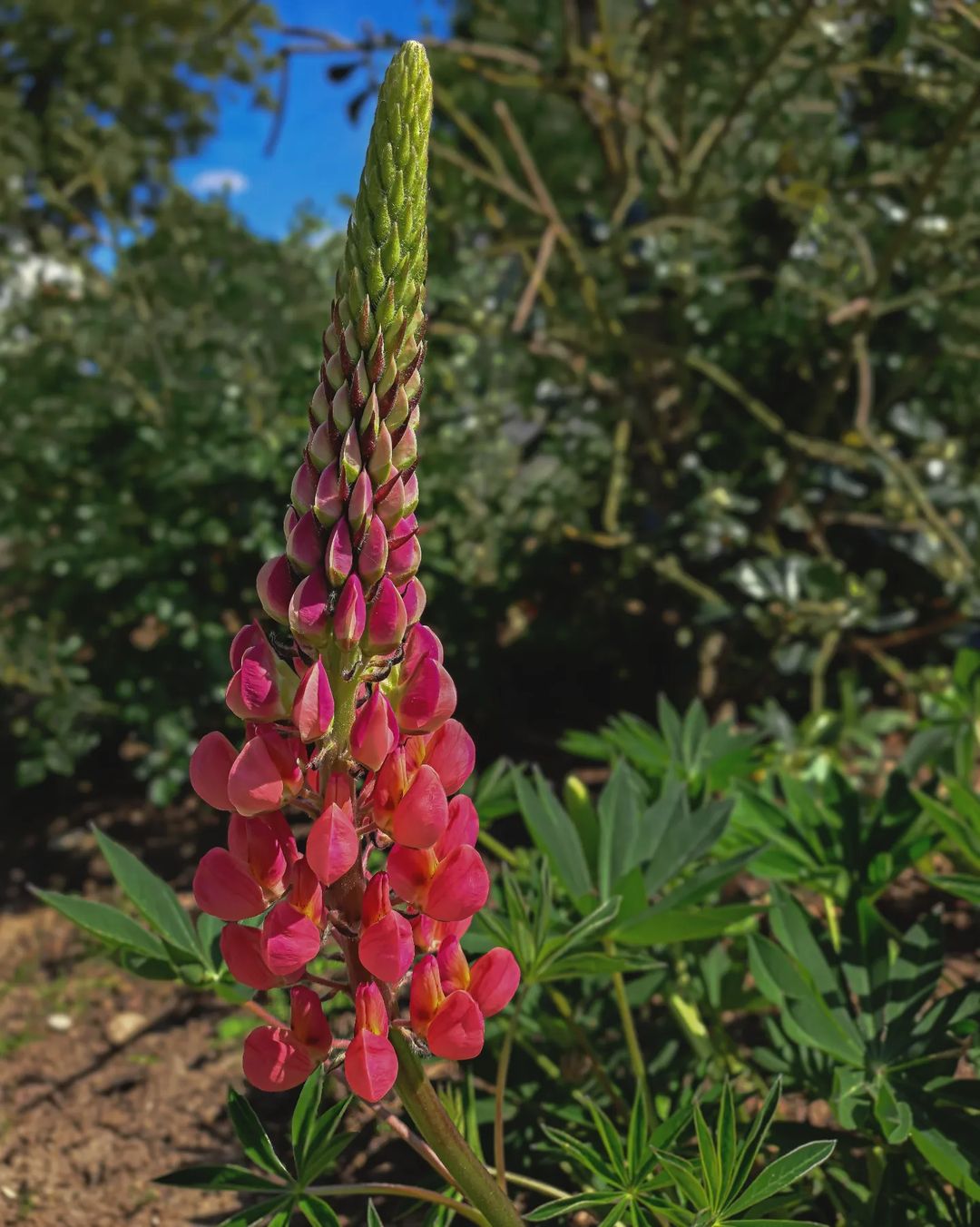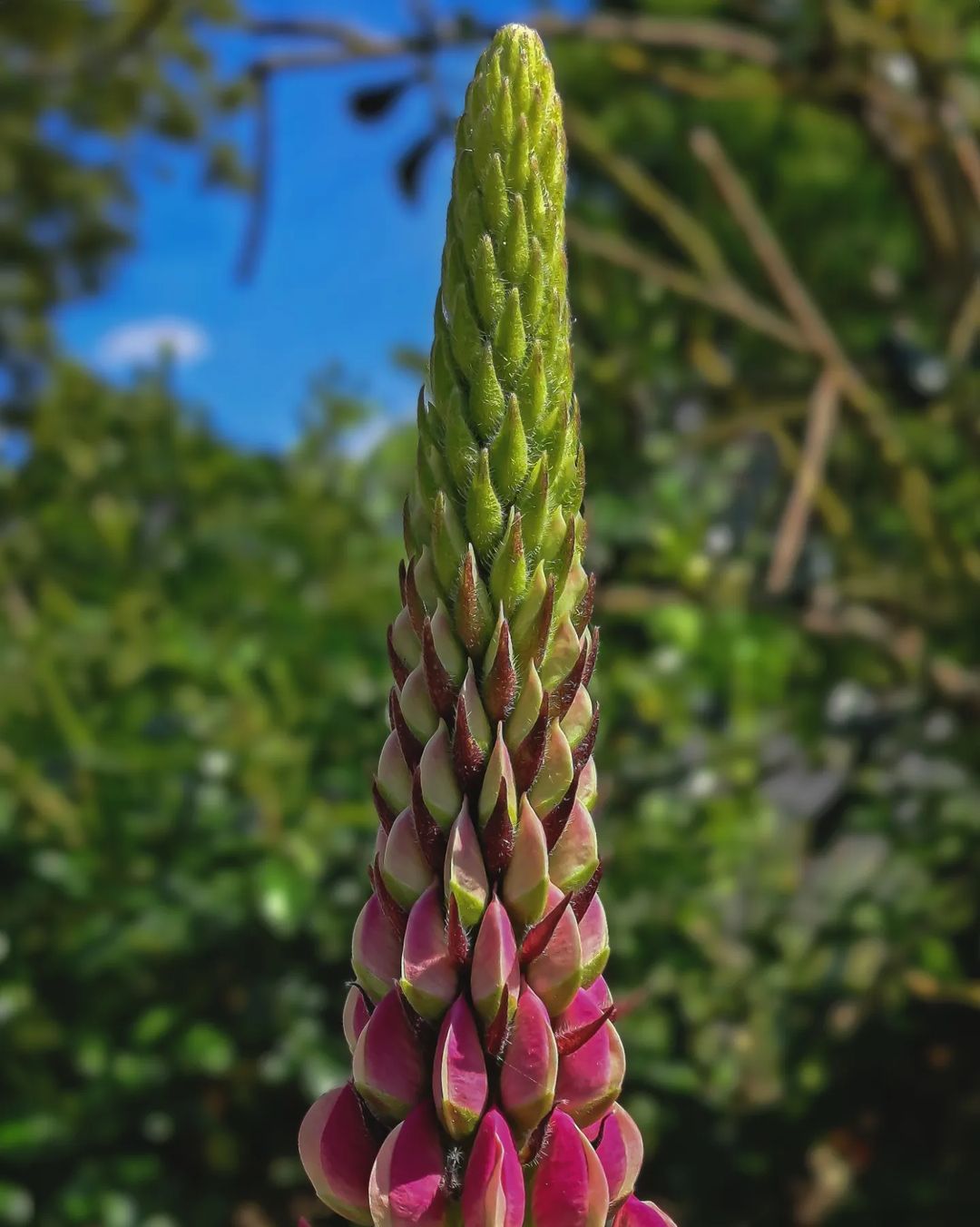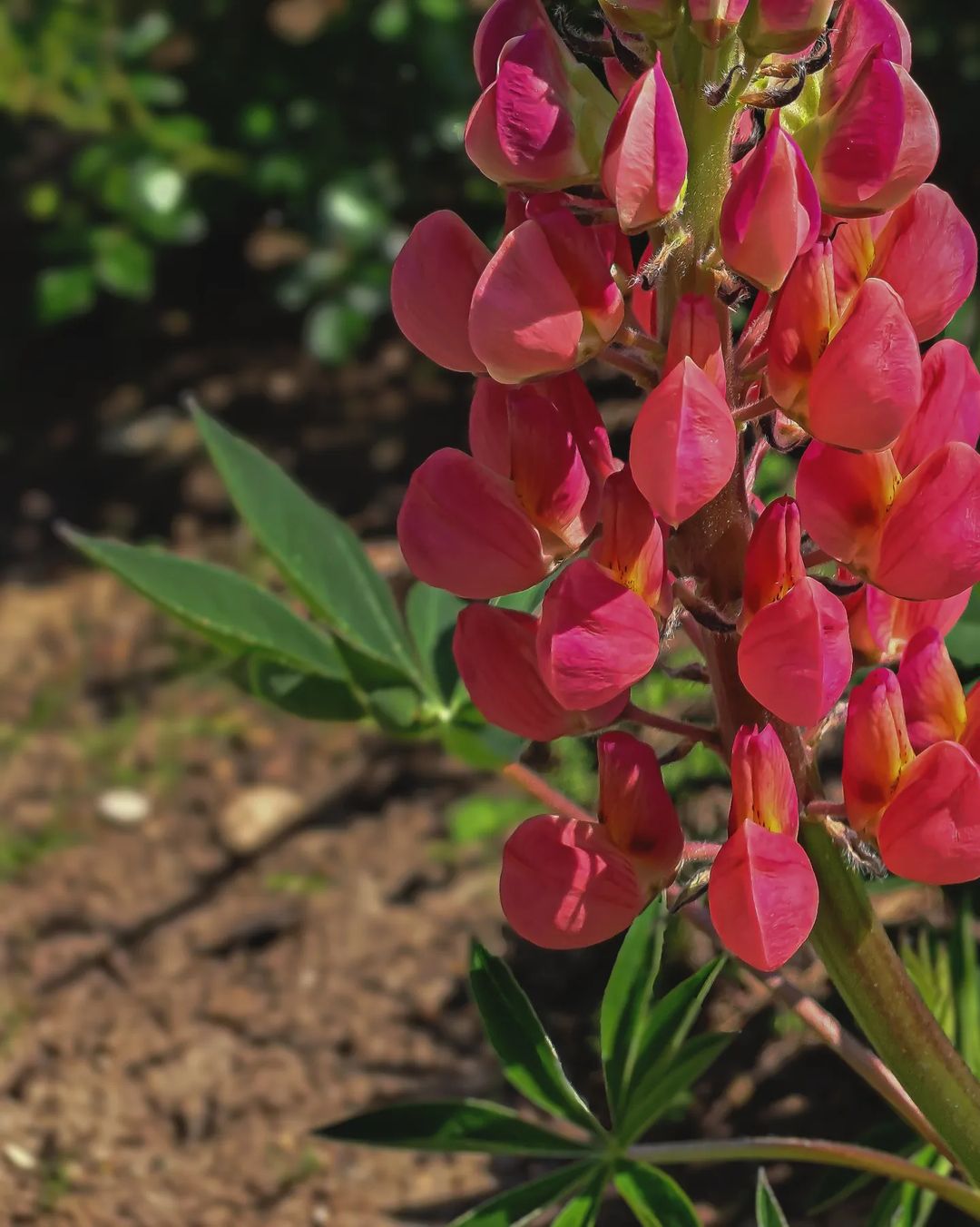Description:
This post is part of the artistic performance The Happening on Instagram.



This post is part of the artistic performance The Happening on Instagram.



🪻The gradual flowering of the garden lupine allows for extended pollination periods, maximizing resource utilization. As the plant blooms over time, it attracts pollinators and ensures continuous reproduction.
Additionally, the symbiotic relationship with Rhizobium bacteria enriches the soil with nitrogen, enhancing its fertility. The chemical signals from the plant's roots attract Rhizobium bacteria, which transform into bacteroids within root nodules. These bacteroids receive nutrients from the plant and, in return, convert atmospheric nitrogen into nutrients such as ammonia, benefiting both the plant and the soil ecosystem. This symbiosis contributes to the productivity of the garden lupine and its surrounding environment.
However, this popular neophyte tends to become wild and its rapid and widespread growth can alter native ecosystems and lead to a loss of biodiversity. It can displace native species as it takes up space and water. Its ability to make nutrient-poor soils more fertile can contribute to the loss of habitats that depend on nutrient-poor soils.
Habitats that are low in nutrients include dry and poor grasslands, dunes and heathlands. These biotopes are home to unique species that only live there. Non-native species contribute to their loss and over-fertilization is one of the biggest problems.
🤗 For a more nuanced discussion, please feel free to use the comments section, private messages or the anonymous contact form on my website.
This post is part of the artistic performance The Happening on Instagram.
Further information about this art project Related post on InstagramCreator of this post is Frederic Hilpert
© File Usage Guidelines This post on megagroundsloth.de#garten #lupine #lupinus #flores #lupinuspolyphyllus #pflanzenfotografie #umwelt #pflanzenwelt #natuurfotografie #environmentprotection #invasivespecies #neophyte #natureknowsbest #natuurverbinding #lanaturaleza #naturfoto #fotosdelanaturaleza #symbiosis #plantae #wissen #flores #blumenfotografie #blumenfoto #biodiversity #pflanzen #naturschutz #bioculturaldiversity #flora #botanic